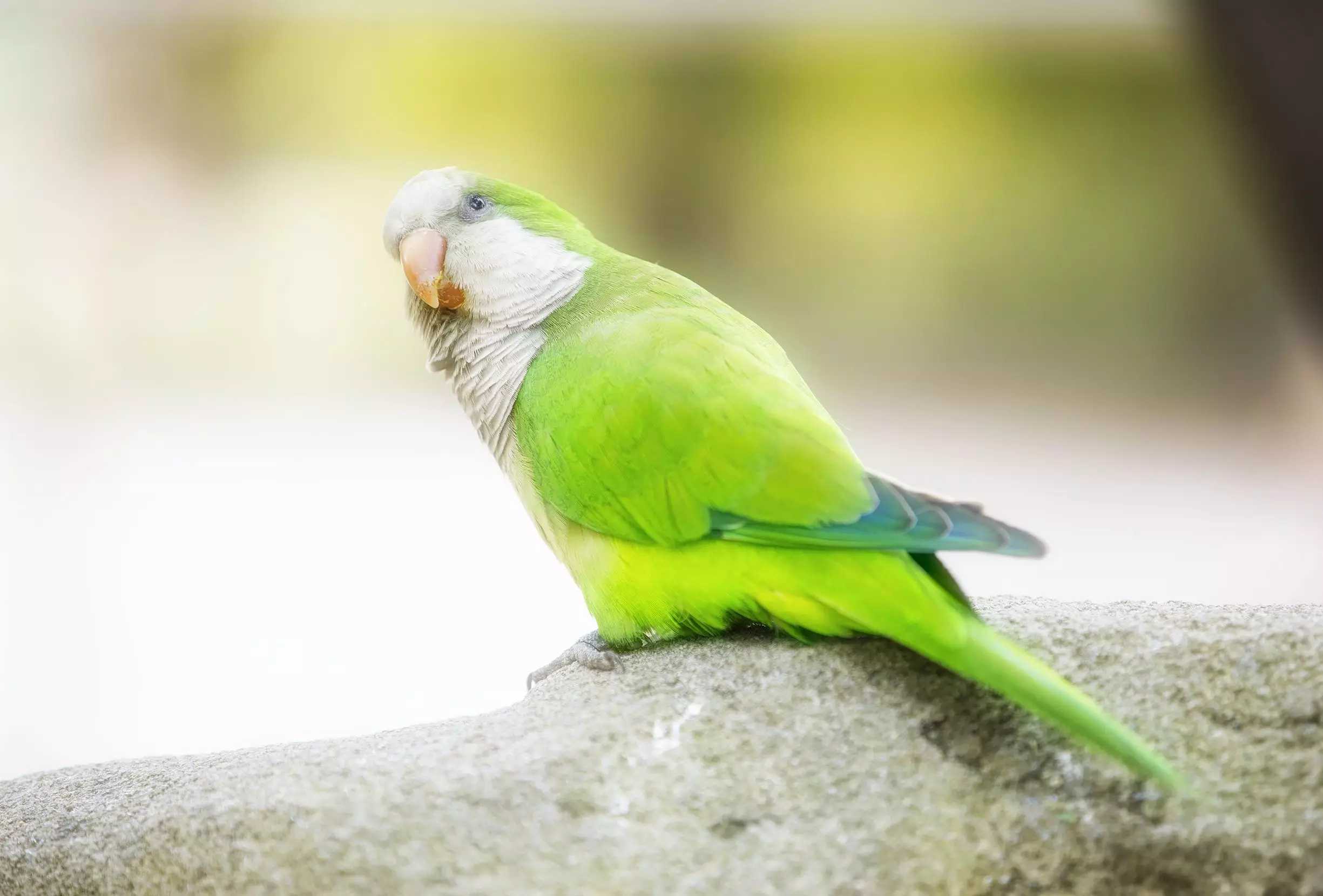Quaker parrots, also known as monk parrots or monk parakeets, belong to the species Myiopsitta monachus. These charming birds have captured the hearts of many avian enthusiasts thanks to their engaging personalities and remarkable social behavior. Their distinctive appearance and vocalizations set them apart in the avian community. The gray markings around their necks have led to their name “Quaker,” reminiscent of the bibs worn by historical members of the Religious Society of Friends, while the resemblance to a monk’s hood is often cited in the lore surrounding their alternative name.
One of the most significant aspects of Quaker parrots is their impressive lifespan. With proper care, these birds can live between 20 to 30 years, and some even surpass this average. This enduring companionship means that potential owners must be prepared for a long-term commitment. Adequate social interaction is essential, as Quakers thrive on bonding with their human caregivers and can suffer emotional distress due to changes in their environment, such as being passed between homes.
The impact of social dynamics on a Quaker parrot’s well-being is profound. In instances of neglect, these birds may develop harmful behaviors, including feather plucking and aggression. Understanding this social dependency is crucial for anyone considering welcoming a Quaker into their lives. The close bond they form with their owners requires dedication and consistent affection.
Quaker parrots are particularly renowned for their ability to mimic human speech, making them ideal companions for those seeking an interactive pet. Individual parrots can develop an extensive vocabulary, often articulating words with clarity that rivals that of larger parrot species. Although not every Quaker is guaranteed to be a proficient talker, many owners express delight at the vocal talents of their birds. Unlike some louder parrot varieties, Quakers are not typically known for ear-piercing calls, making them a more apartment-friendly option.
Quakers have lively personalities and can be quite entertaining. Their quirks, such as their characteristic “quaking” movements when excited, contribute to their reputation as playful and engaging pets. These birds enjoy socialization, requiring plenty of interaction and mental stimulation to thrive. They can keep their owners entertained with their chatter and antics, akin to having a small, feathered comedian in the home.
Deciding to adopt a Quaker parrot involves more than just selecting a bird; it necessitates creating a conducive environment and ensuring a healthy diet. While Quakers are medium-sized parrots, they must still have spacious and secure housing. At 11 to 12 inches in length and weighing between 3 to 5 ounces, Quakers benefit from a flight-friendly space. Owners should invest in sturdy cages that cater to their penchant for chewing and their skill in escaping.
In addition to ample space for movement, a nurturing environment includes a balanced diet. Quaker parrots should receive quality pellets combined with a seed mix, supplemented by fresh fruits and vegetables. This well-rounded diet mirrors their natural eating habits in the wild. It’s crucial to monitor their intake of high-fat treats, such as nuts and seeds, to prevent obesity, as these birds can gain weight easily without proper dietary oversight.
Introducing a Quaker parrot into your home requires a gradual acclimatization process. New birds may initially display anxiety; thus, spending time near their cage while talking gently can foster trust. Slowly integrating your hand into their space and offering treats encourages positive interactions, helping build a solid bond. Quakers often appreciate companionship, and while they can develop affection for multiple people, they typically bond most strongly with one person.
Understanding Quaker behavior is essential for successful ownership. Their vocal nature and dominant personality traits mean that new owners must be prepared to manage these characteristics carefully. Educating oneself about potential behavioral challenges can empower owners to establish a satisfying relationship with their feathered friend.
Before adopting a Quaker parrot, potential owners must consider local regulations, as these birds are prohibited in several states, including California and Colorado, among others. Compliance with legal requirements is essential for responsible pet ownership.
In terms of financial commitment, the purchase price for a Quaker parrot ranges between $300 and $600, excluding potential shipping costs and ongoing veterinary expenses. Both initial and ongoing financial considerations highlight the importance of preparing for the comprehensive care required for these lively companions.
Quaker parrots embody companionship and longevity, demanding a commitment to their care and social needs. Their playful personalities and remarkable abilities to mimic speech can enrich any household environment. However, potential owners must prepare for the responsibilities associated with their care. By providing a nurturing atmosphere, a well-balanced diet, and fostering social interaction, Quaker parrots can thrive, bringing joy for many years to come.

